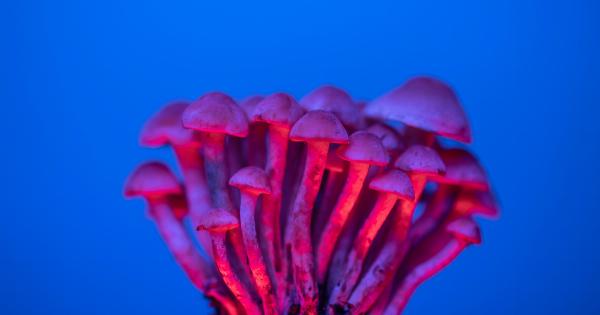Depression is a leading cause of disability worldwide, affecting more than 264 million people globally. It is a severe and debilitating condition that has far-reaching impacts on one’s quality of life.
Over the years, several medications have been developed to manage depression. However, these medications have numerous side effects and do not work for everyone.
Magic Mushrooms: A New Hope for Antidepressants?
Recently, researchers have been exploring the potential of magic mushrooms, also known as psilocybin mushrooms, in treating depression. Psilocybin is a hallucinogenic substance found in more than 200 species of mushrooms globally.
In a small study published in the Journal of Psychopharmacology, researchers found that psilocybin was effective in treating treatment-resistant depression.
The study comprised 19 participants who received two doses of psilocybin in a controlled setting. The researchers noted that psilocybin significantly reduced the symptoms of depression in the participants four weeks after the treatment.
How Magic Mushrooms Work
Magic mushrooms are thought to work by affecting the serotonin system in the brain. Serotonin is a neurotransmitter that helps regulate mood, appetite, and sleep.
Several studies have shown that psilocybin can cause significant changes in the serotonin system, leading to a shift in one’s mood.
The Potential Benefits of Magic Mushrooms
Magic mushrooms have several potential benefits in treating depression. Firstly, they have a fast onset of action, meaning that they can begin to work within hours of administration.
Secondly, they have a long-lasting effect, with some patients reporting a single dose can last for months. This is in stark contrast to traditional antidepressants, which take days or even weeks to start working and need to be taken daily.
Furthermore, psilocybin could help reduce the need for antidepressant medication.
A report published in Scientific American noted that conventional antidepressants were often referred to as a “chemical straightjacket,” as they can dull emotions and lead to a loss of creativity. Psilocybin, on the other hand, can lead to a “mystical experience,” where patients report feeling a deep sense of connection with the world around them, increased creativity and a renewed sense of purpose.
Challenges Facing Magic Mushrooms
Despite the potential benefits, there are several challenges facing the use of magic mushrooms as an antidepressant. Firstly, psilocybin is still a prohibited substance in most countries worldwide, meaning that conducting research can be challenging.
Secondly, administering magic mushrooms safely and in a controlled setting requires significant training and resources.
The effects of psilocybin can also vary significantly from individual to individual, and there is no standard dose that works for everyone. Therefore, there is a risk of adverse effects such as panic attacks and paranoia.
Lastly, the long-term effects of psilocybin on the brain are still unknown, creating concerns about the potential risks of long-term use.
The Future of Magic Mushrooms
Despite these challenges, the potential benefits of magic mushrooms in treating depression make it an avenue worth exploring. Researchers are continually working on improving the safety and effectiveness of the treatment.
Several studies are currently underway on the use of psilocybin in treating depression and other mental health conditions, and more are expected to follow.
Recently, the US Food and Drug Administration (FDA) granted breakthrough therapy designation to a psilocybin-based therapy for major depression disorder, providing further evidence of the growing interest in the use of magic mushrooms as an antidepressant.
Conclusion
Depression is a severe and debilitating condition that affects millions of people worldwide. While there are several medications available to manage depression, they are not always effective and have numerous side effects.
Recently, researchers have been exploring the potential of magic mushrooms in treating depression. The early results are promising, with psilocybin showing significant reductions in the symptoms of treatment-resistant depression. Despite the challenges facing magic mushrooms, the potential benefits make it an avenue worth pursuing.






























